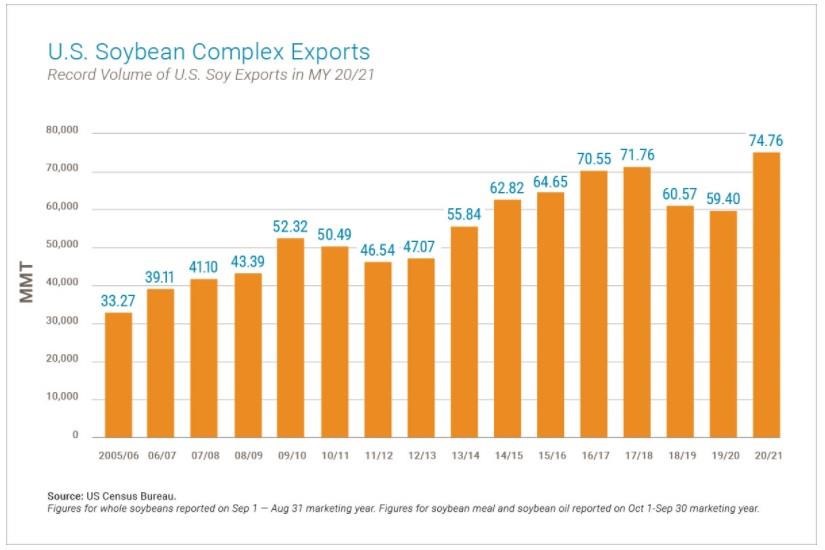
U.S. Soy set a new record for exporting more product in more international markets than ever before, the United Soybean Board, U.S. Soybean Export Council and American Soybean Association announced today. During the 20/21 market year, a record 61.65 MMT of whole soybeans shipped to markets across the globe, at a value of over $28B in revenue for the U.S. Soy industry. The volume boost is the result of strategic efforts to diversify international markets and distribute more U.S. Soy globally.
“This record is a result of efforts to enhance access and usage of U.S. Soy across the food, feed and livestock industries and across international markets by the U.S. Soy farmers and industry, our customers, and governments around the world,” said Jim Sutter, CEO of U.S. Soybean Export Council (USSEC). “Setting the new aggregate volume record demonstrates the value of the investment of U.S. Soy farmers to create positive impact for our customers around the world to contribute to improved nutrition and food security, environmental sustainability, and livelihoods globally.”
The U.S. Soy industry achieved high export results across the board this year. U.S. Soy shipped 74.76M metric tonnes of total soybean complex, valued at more than $34B (based on Sep-Aug for whole beans, and Oct-Sep for soybean meal and oil). International markets purchased 12.3M metric tonnes of soybean meal and approximately 781,766 metric tonnes of soybean oil. A large part of this success is due to the resources and education in which the soy checkoff has invested over the years. One example is the U.S. Soy Dare to Compare marketing campaign, which highlighted the superior nutritional value, oil quality, and sustainability of U.S. Soy to our industry customers and enabled informed, data-driven product development and supply chain decisions. Another example is USSEC’s Soy Excellence Centers in Egypt, Honduras, Nigeria, Singapore, and Thailand, which provide world-class workforce training and capacity building within the soy value chain to enable local visions for health, nutrition, and environmental sustainability in collaboration with diverse food and agriculture stakeholders.